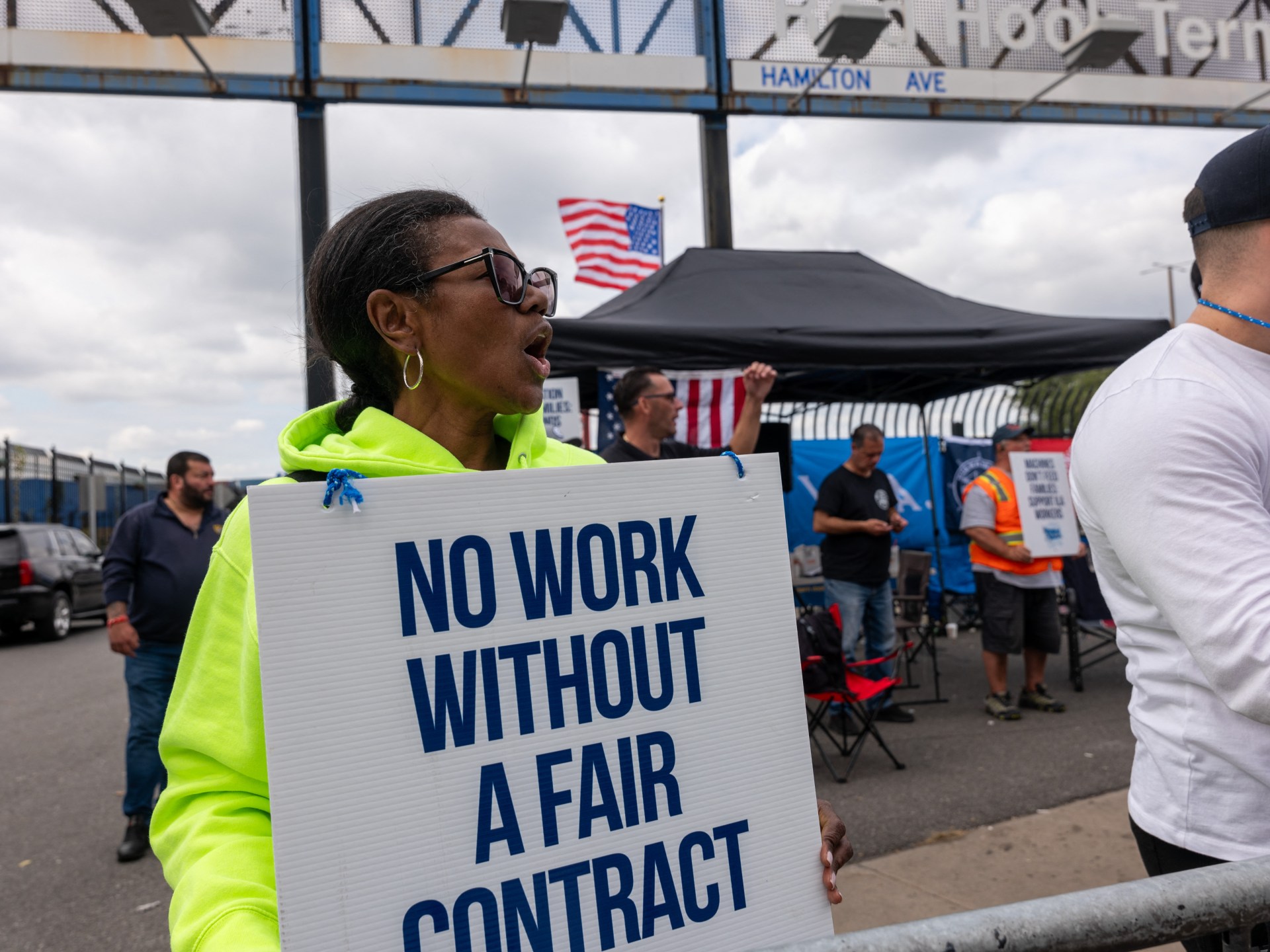US President Biden urged for a quick deal to end the standoff, which threatens to drain billions from the US economy.
Tens of thousands of United States dockworkers have continued to strike for a second day, keeping shipments at major eastern dockyards at a standstill.
Containers at 36 ports stretching from Maine to Texas piled up on Wednesday, as the dockworkers appeared no closer to a deal with their employers’ group, the United States Maritime Alliance (USMX).
The stoppage is aimed at securing higher wages and better protections for the 45,000 workers in the International Longshoremen’s Association (ILA), but experts fear it could spur stinging economic losses and higher inflation in the month before presidential elections.
The market forecaster Oxford Economics projects the standoff could drain between $4.5bn and $7.5bn from the US economy for every week that passes.
‘Time for them to sit down’
White House officials, fearing an economic dip, urged USMX to engage more with the port workers’ demands, which include a 77 percent wage hike over six years and a ban on automation.
“It’s time for them to sit at the table and get this strike done,” Biden told reporters on Wednesday.
He said ocean carriers had raked in huge profits during the COVID-19 pandemic and should fairly compensate the workers who kept their businesses booming.
“They made incredible profits, over 800 percent profit since the pandemic, and the owners are making tens of millions of dollars from this,” Biden said.
The president’s transportation secretary, Pete Buttigieg, also urged the port employers to make more concessions.
“The companies need to put forward an offer that’s going to get the workers to the table,” Buttigieg said. “We actually think the parties economically are not as far apart from each other as they may think.”
In its final offer, before negotiations collapsed, USMX offered to raise wages by 50 percent and keep current automation checks in place.
‘The longer the strike, the deeper the damage’
While a short-term stoppage is expected to have minimal effects on US consumers, a prolonged strike could spell trouble, analysts say.
“The longer the strike action goes on and the longer it takes the US government to intervene, the deeper the damage will be to the economy and the longer it will take for ocean supply chains to recover,” said Peter Sand, chief analyst at shipping data company Xeneta.
Biden has the authority under the 1947 Taft-Hartley Act to order the union members back to work, but he has avoided taking such action.
The Democrat has long touted his ambition to be “the most pro-union president leading the most pro-union administration in American history”, and he made history in September 2023 by becoming the first sitting president to join a picket line.
In the midst of the current standoff, Biden has directed his team to watch out for potential price gouging that benefits foreign ocean carriers, according to the White House.
